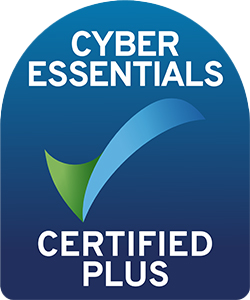From PCB assembly roles to quality inspection and electronics engineering, employers want to see more than enthusiasm. They want proof you understand the job and know how your skills fit in. This is where knowing how to write a cover letter that can explain things your CV doesn’t show, will come in handy.
A good cover letter can help connect the dots for the person reading it, especially when you’re changing roles or applying for something new. In this post, we’ll look at how to write a cover letter for jobs in electronics, and how to make it worth the effort.
How to Write a Cover Letter
Start with the Basics
Before you start writing, take a close look at the job description. That’s where you’ll find the clues you need. Most electronics employers in the UK list the tools, systems, and standards they expect applicants to know. It might include IPC certification, soldering experience, or the ability to read schematics. It could mention quality control, rework, or specific inspection methods. The more closely your cover letter reflects what they’re asking for, the more likely you are to get invited for an interview.
Your cover letter should be addressed to a person where possible. If there’s no name listed, try to find out who the hiring manager is. If not, you can use something simple and clear like “Hiring Manager”. Then move into your opening paragraph with a line that shows exactly which role you’re applying for and where you saw it.
From there, avoid anything that sounds too vague. Instead of saying you’re a team player or a quick learner, talk about what you’ve done. If you’ve worked in a cleanroom or built circuits to a particular standard, mention that. If you’ve tested components or fault-found under a microscope, say so. That kind of detail means far more than general statements.
Connect Your Experience to the Role
This should be the main focus of your cover letter. It’s where you match your experience to what the employer is looking for. Pick out two or three key points from the job description and talk about where you’ve used those skills before. Keep it brief and to the point. Most hiring managers don’t have time to read long letters, so the quicker you get to the point, the better.
If you’ve worked on PCB assembly lines, mention the types of boards you’ve worked on. Were you responsible for visual inspection or rework? Specifics like these make it easy for the reader to see your value.
Don’t just repeat what’s on your CV. Use the cover letter to explain how what you’ve done makes you right for this role. You might say that your experience following IPC-A-610 standards has made you confident working in environments where precision and reliability matter. That’s the kind of link that helps a recruiter see why you’re worth interviewing.
Show That You Understand the Company
Hiring managers want to know that you’ve taken the time to look into who they are. It doesn’t need to be long, but a short paragraph showing you understand what they do can go a long way. It sets your application apart from people sending the same letter to every job they see.
For example, If the business makes medical devices, you might mention your experience working to strict documentation or batch control requirements.
You don’t have to flatter them. Just show that you know what the company does and why it fits with your skills or interests.

Mention Certifications and Standards
Certifications matter in the electronics world. If you hold any recognised standards, your cover letter is a good place to mention them. This might include certifications like IPC-A-610, J-STD-001 or IPC CID. Don’t assume the reader will spot these on your CV. Call them out clearly.
If your certification is current, say so. If you’re due to re-certify soon, that’s worth adding too. It shows that you take compliance seriously and are keeping your knowledge up to date.
Take a look at the range of IPC courses and electronics skills courses we provide at The Electronics Group.
Keep the Tone Practical and Professional
In the electronics industry, most employers look for a clear, down-to-earth approach. You don’t need to write in an overly formal way, but your tone should still be respectful and professional. Think of it as a chance to speak directly to the person hiring, without being too stiff or too casual.
Make sure your grammar and spelling are accurate. It might seem obvious, but small mistakes stand out more in a short letter.
Have a Strong Ending
The end of your cover letter should leave no doubt about what you want to happen next. A short, clear closing paragraph is all you need. You might say that you would welcome the chance to discuss your experience in more detail or that you’re happy to answer any questions they may have.
Sign off with “Kind regards” or “Best regards”, followed by your name. There’s no need to include your contact details again if they’re already on your CV.
Should You Always Include a Cover Letter?
In the electronics industry, cover letters aren’t always expected, but they are often noticed. If a job ad says to include one, then it’s clearly important. Even if it doesn’t mention it, sending a cover letter can still help, especially when applying directly rather than through a portal.
Some technical roles have more structured applications, like public sector or defence contracts. In those cases, you might need to submit a supporting statement instead. The same rules apply: match your experience to the job, show you understand the company, and write clearly.
Final Thoughts on How to Write a Cover Letter for a Job in the Electronics Industry
Writing a solid cover letter can feel a little daunting, especially if you’re not sure what employers in the electronics industry want to see. That’s where we can help. At The Electronics Group, we work directly with candidates to support their job search. From improving applications to connecting you with roles that suit your skills and goals.
If you’re applying for jobs in electronics and want advice on your cover letter, get in touch with our recruitment team. We’re here to help you put your best foot forward.


